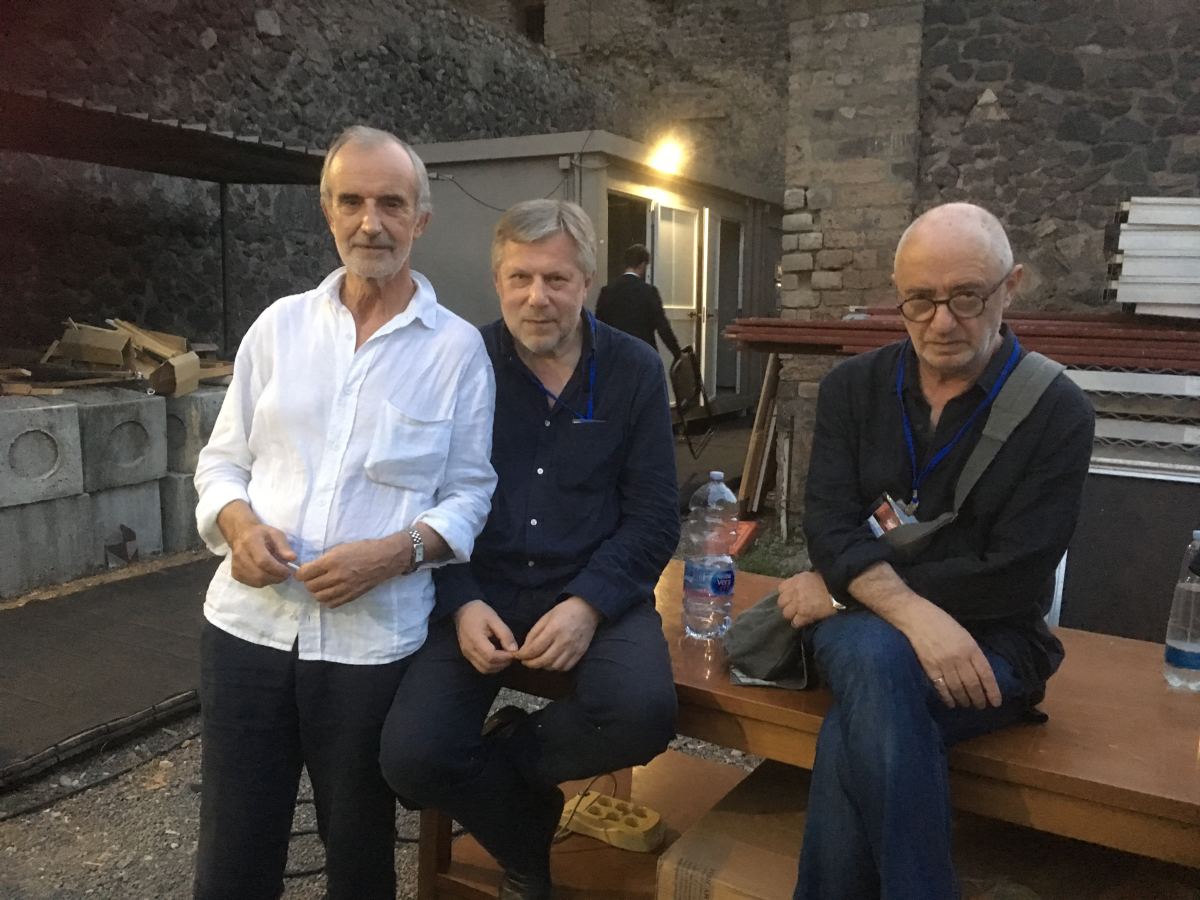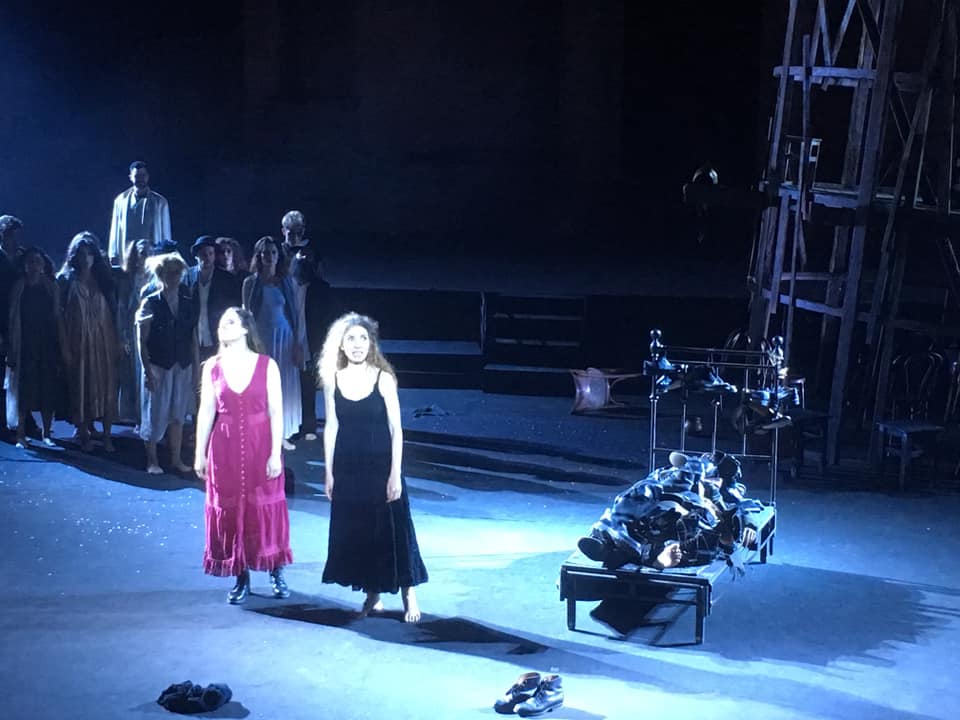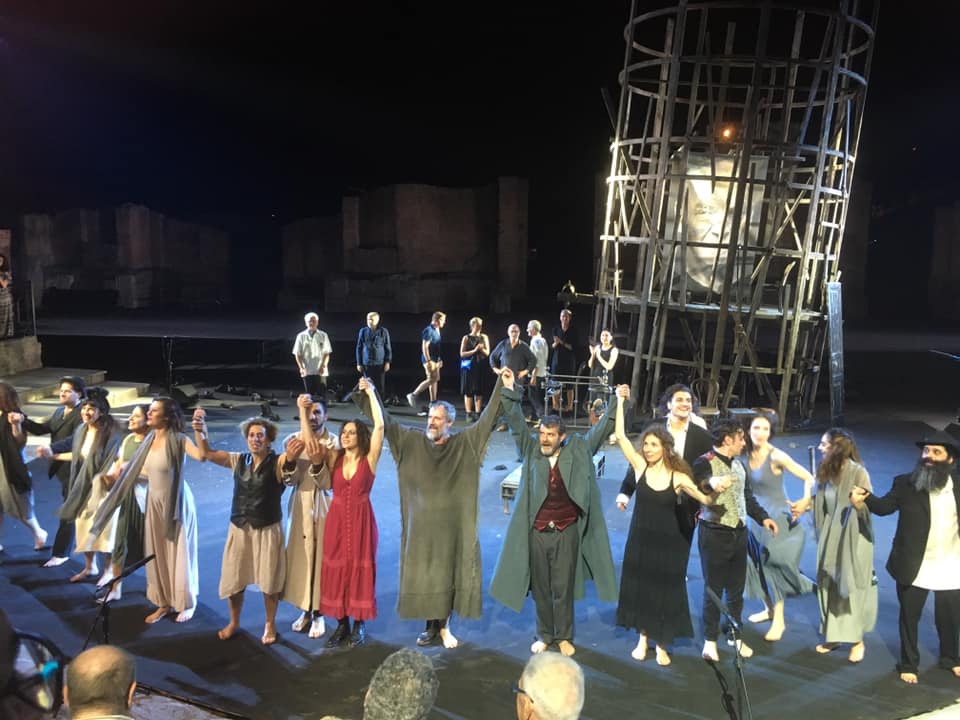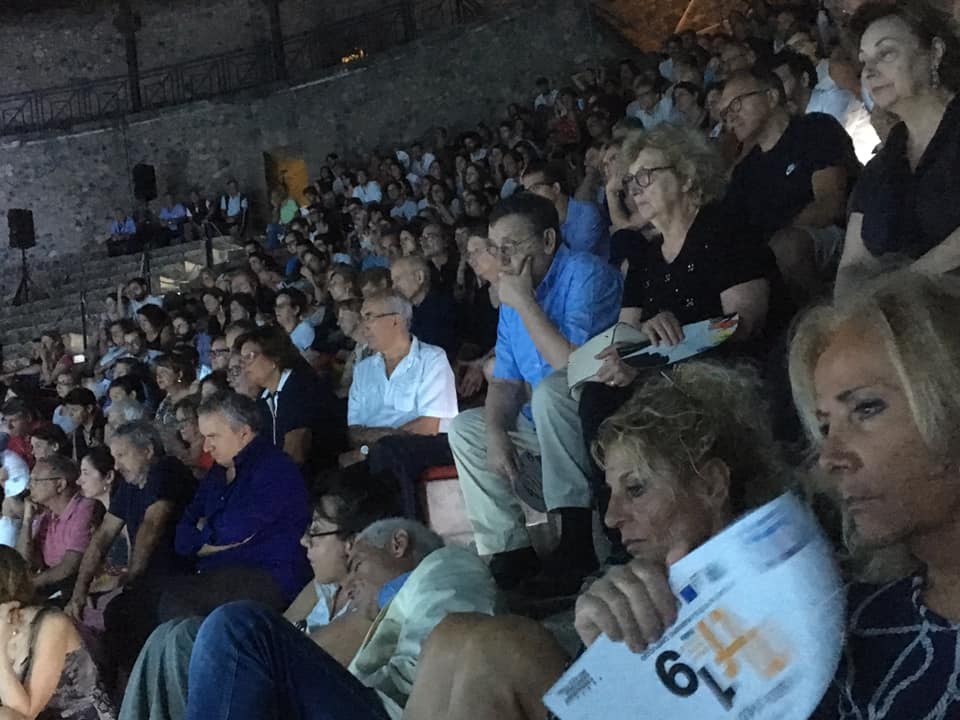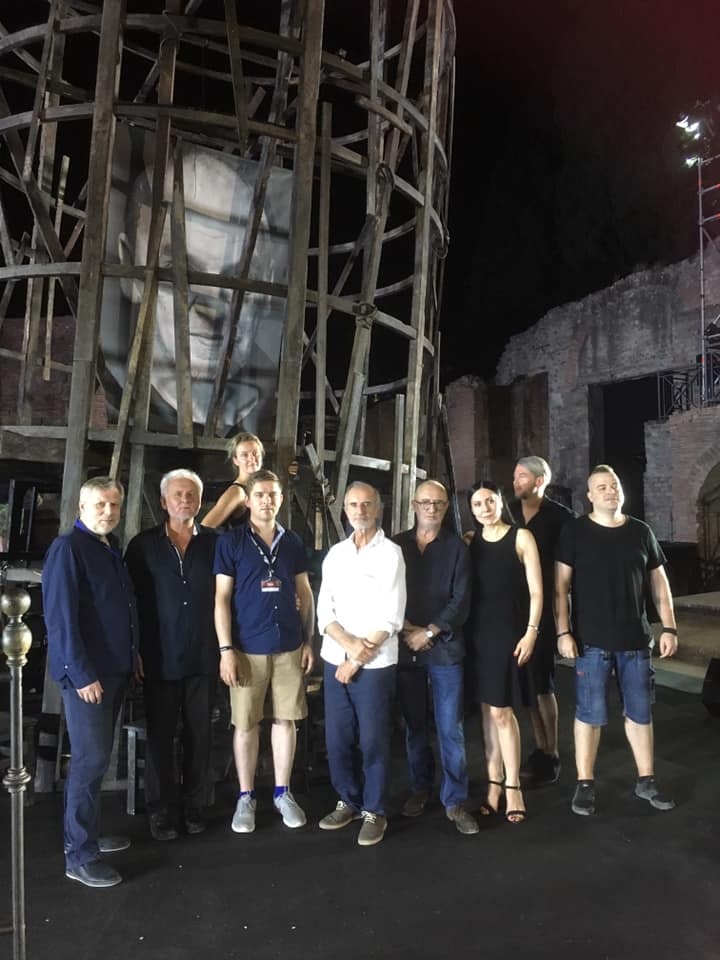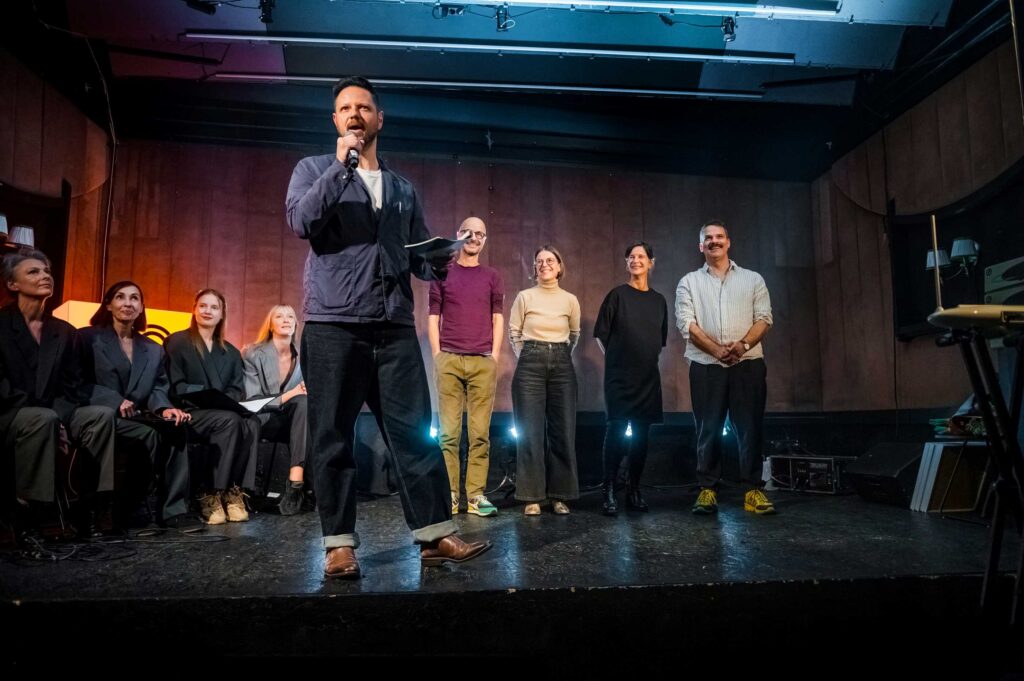What a tragic paradox - director Eimuntas Nekrošius was invited to stage the performance Oedipus at Colonus (Italian: Edipo a Colono) in Italy, and yet by force of circumstances, the performance was directed by Rimas Tuminas who dedicated it to the memory of Eimuntas Nekrošius.
The premiere took place at the International Theatre Festival of Pompeii (Pompeii Theatrum Mundi) on the last days of June. Oedipus at Colonus was staged with Italian actors and was shown for three nights at the restored ancient Pompeian theatre, which had been flooded by lava from Mount Vesuvius on 24 August, AD 79.
The play was written by contemporary Italian playwright Ruggero Cappuccio. His play speaks about the final stage of Oedipus' journey on this earth. According to the ancient myth, blinded Oedipus long wandered the world as the earth refused to accept him. He is accompanied to the last stop of his earthly journey by his daughters Antigone and Ismene; his selfish sons also turn up. Oedipus tells about his fate and the earth accepts him together with all his sins. The 'Promised land' in the play is none other than a retirement home, whereas the chorus is embodied by its inhabitants and patients. Only King Theseus has the right to hear Oedipus out and accompany him to eternal peace. According to the interpretation of director Rimas Tuminas, “Having punished himself and undergone horrible sufferings, Oedipus redeemed his guilt and, thus, was beckoned by Heaven's call. His death is the ascension to heaven. It's like a feast of this earth. The end of his wanderings and his great festive journey to heaven.”
This is the fifth performance about Oedipus by Rimas Tuminas. In 1998, the director staged Oedipus Rex by Sophocles in Lithuania; in 2016 - at the Ancient Theatre of Epidaurus in Greece. Later, Tuminas adapted the Greek staging at the Evgeny Vakhtangov State Academic Theatre in Moscow. In 2017, he also staged the oratory Oedipus Rex by Igor Stravinsky at the Stanislavski and Nemirovich-Danchenko Moscow Academic Music Theatre. This year, Tuminas has continued his creative journey around the world of Oedipus in Italy.
“I agreed to work in Italy only because Eimuntas Nekrošius had not started anything. I would not have dared to touch anything that he had started,” Rimas Tuminas says.
As the premiere was dedicated to the memory of the ingenious Lithuanian director, who had passed away in November, Rimas Tuminas decided to show the portrait of Eimuntas Nekrošius as well as to include various quotations and musical motifs from his works in the performance Oedipus at Colonus. This is not surprising as Tuminas' constant partners - stage designer Adomas Jacovskis and composer Faustas Latėnas - were also the co-authors of the performances by Eimuntas Nekrošius. Oedipus at Colonus was rehearsed successfully in twenty-five days. Rimas Tuminas was really happy that the actors he'd chosen knew the performances by Eimuntas Nekrošius very well and even suggested some of the quotations.
When, at the end of Oedipus at Colonus, the choir of Italian actors sang the Lithuanian song Oh, Beautiful, Beautiful Distant Sky, Will You Accept Me, Dear God written by poet Antanas Vienažindis in 1841, a huge portrait of Nekrošius descended on a battered wooden tower constructed on the stage. 2,000 spectators stood up and the theatre erupted with ovations. On all three nights when Oedipus at Colonus was performed at the ancient theatre of Pompeii, the performance was interrupted by rounds of applause from the fascinated audience.
On July 8, Oedipus at Colonus will be shown in Teatro Alighieri during Ravenna festival, whereas 11 more performances will be given at the San Ferdinando Theatre in Naples, in February.


